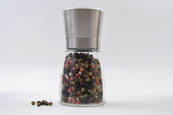
The greatest balance in our lifestyle is between activity and rest. Right kinds of activity include moderate exercise, regular stimulation and use of the mind; including healthy interactions with our family, friends, co-workers and the world.
Although activity plays a huge role in health, the opposite, rest is equally important. In today’s world, the mind is usually too active while the body doesn’t get enough of the right stimulation from balanced foods and exercise or too much from excesses of chemicals, fats, sugars and proteins in the diet. A lack of protein, vitamins and minerals is equally as bad. This occurs in modern eating and some natural diets. In this article, I will focus on the importance of rest.
There are many ways within our lifestyle to give our mind a break. Less entertainment from television, the internet, and video games would help. Learning meditation is also a great rest for the mind. I believe that these suggestions would help everyone. The greatest rest, though, comes from our daily, sound and deep sleep.
Scientific research has indicated the following symptoms can arise from a lack of sleep; attention deficit such as depression, decreased mental activity, and concentration, lower immune function, dizziness, general confusion, high blood pressure, memory loss and weight gain.
According to a 2000 study published in the British scientific journal, researchers in Australia and New Zealand reported that sleep deprivation can have some of the same hazardous effects as being drunk.
Several large studies using nationally representative samples suggest that the obesity epidemic in Europe and the United States might have as one of its causes a decrease in the average number of hours that people are sleeping.
In traditional oriental medicine, which modern systems of macrobiotics draws upon, the balance of opposites are known as yin and yang. Rest and activity is one expression of this balance in day to day life. Simply put, activity of the body and mind is yang (an active state) while rest is yin (a quiet state). Both are necessary for good health.
During sleep our body enters into the greatest resting and rejuvenating state. This occurs because of the part of your autonomic nervous system known as the parasympathetic nervous system. This system when active, as it is during sleep, causes the body to conserve energy and absorb nutrition. Under the parasympathetic influence, our body rebuilds itself. Over a period of days, weeks, months and years all the cells of the body are replaced. This happens while we are sleeping.
Inadequate sleep leads to premature breakdown of the body which will lead to premature aging and a greater opportunity for degenerative diseases such as cancer.
Another mechanism for this process is described by Allan Hobson, M.D., a professor of psychiatry at Harvard Medical School, director of the Laboratory of Neurophysiology at the Massachusetts Mental Health Center.
“To make a long and fascinating story short, it turns out that when animals are sleep deprived, a protein known as di-muramyl peptide accumulates in their spinal fluid. The peptides do not originate in the brain. Instead, they come from bacteria in the body, suggesting that sleep deprivation may enable bacterial growth and that sufficient sleep impedes bacterial growth.” The Chemistry of Conscious States: How The Brain Changes Its Mind by J. Allan Hobson. Copyright © 1994. Published by Little, Brown and Co.
In other words, sleep is the great rejuvenator, the time of the day that your body gets to go into the deep yin state of rest. Adequate and deep sleep aids all levels of health and well being.
What time you go to sleep makes a huge difference in health. During the day, the atmosphere as a direct result of the sun’s radiation, is full of positive ions. These ions signal your sympathetic nervous system to become activated. Our body, in response, uses up nutrients and energy for our daily activities.
In the evening as the sun retreats, the atmosphere is flooded with negative ions. Negative ions stimulate the parasympathetic nervous system into action. The parasympathetic nervous system causes your body to go into the rebuilding and cleansing mode. All the tissues of the body are rebuilt while you sleep. Most of the toxins that our body makes and we take from foods are cleansed.
Going to bed earlier causes your parasympathetic system to work better at building and cleansing. This happens because the body is exposed to more of the negative ions when you sleep in the dark.
Part of the immune boosting effect was confirmed by a study of sleep in darkness with women with breast cancer. This study was published in December 1, 2005 issue of Cancer Research.
Researchers found that sleeping for several hours in nighttime darkness promotes a healthy blood level of a hormone called melatonin, which can significantly suppress the growth and proliferation of breast tumors.
Melatonin is one of the hormones that aids the functioning of the parasympathetic nervous system during sleep.
Most people will notice the effects of good and adequate sleep after a short time. There are some, though, who can’t fall asleep. There is quite a bit of research that indicates that this is related to a deficiency of the neurohormone, gabba. Gabba is directly linked to diet and lifestyle. This hormone causes us to relax and sleep deeply by shutting down the stress hormones to the brain.
Make sleeping a priority. Work on sleeping the most during the darkest hours for great health benefits. Pleasant dreams to all!




 RSS Feed
RSS Feed